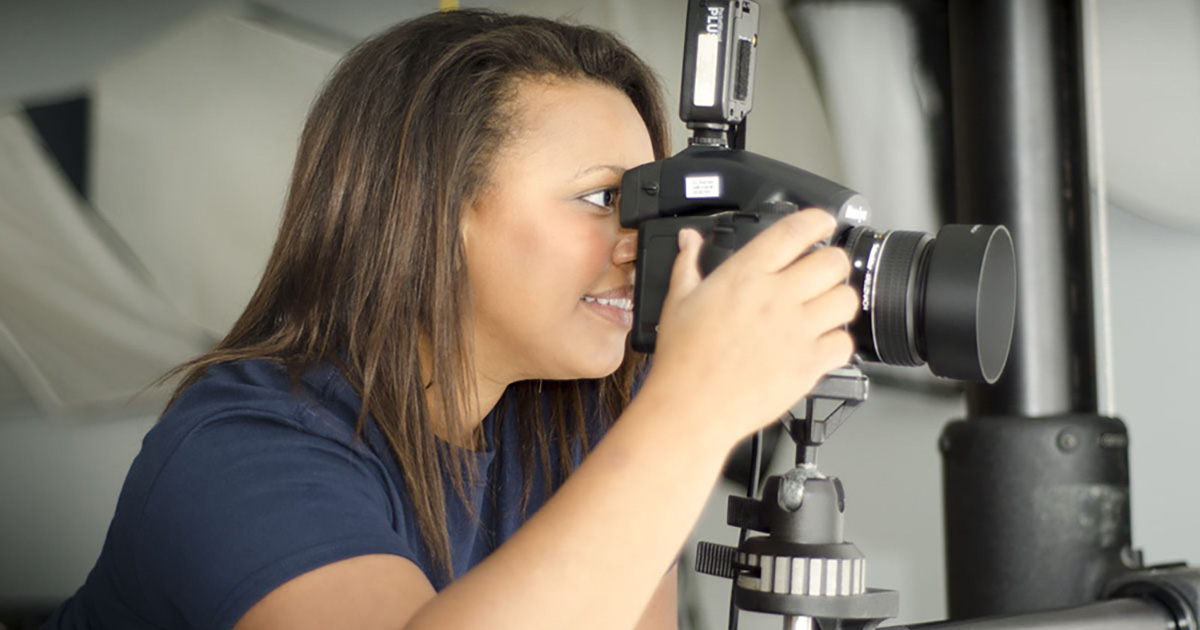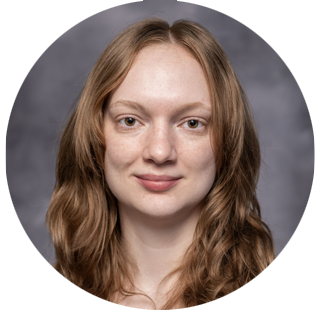
PHOTOGRAPHY & MULTIMEDIA
Today more than ever, communication is accomplished through visual imagery. In this rapidly growing field, photography and multimedia professionals are needed to create, process and publish images for a wide range of technology-related demands.
The Photography and Multimedia Program at Kellogg Community College prepares students to enter these diverse fields. The program emphasizes creativity, artistic design and the use of traditional film and contemporary digital media technologies through hands-on learning and project creation with small class sizes.
KCC offers an Associate in Applied Science degree in Photography and Multimedia and a Photography and Multimedia Certificate. For more information about KCC’s Photography and Multimedia Program, see:
Advising & Transfer
A Photography and Multimedia associate degree or certificate from KCC will allow for successful professional employment or transfer for continued photographic education with a bachelor’s degree. In the past, students have successfully transferred to the Art Institute of Chicago, the California Institute of Arts, the College of Santa Fe, the Columbus College of Art & Design, Kendall College of Art and Design, the San Francisco Art Institute, the University of the Arts and Western Michigan University.
View transfer guides outlining opportunities for students looking to transfer their KCC credits to a four-year institution. Contact Academic Advising at 269-965-4124 or advising@kellogg.edu to schedule an appointment to plot a personal transfer plan.
Additional Information
Your content goes here. Edit or remove this text inline or in the module Content settings. You can also style every aspect of this content in the module Design settings and even apply custom CSS to this text in the module Advanced settings.
Photography & Multimedia Certificate
KCC’s Photography and Multimedia Certificate is designed for individuals either working or seeking employment in the various photography and multimedia fields. The certificate provides a well-rounded curriculum concentrating on specific skill requirements. The courses provide an industry standard of technical training in a relatively short period of time and transfer into the Associate in Applied Science degree program.
| Semester I | Semester II |
|---|---|
| ANIM 103: Intro to Video Art (3 credits) | ART 110: Drawing 1 (3 credits) |
| ART 103: Two-Dimension Design (3 credits) | ART 223: Intermediate Photography (3 credits) |
| ART 222: Intro to Photography (3 credits) | ART 229: Studio Photography (3 credits) |
| ART 227: Digital Color Photography (3 credits) | GRDE 135: Digital Illustration and Layout (3 credits) |
| GRDE 210: Design for the Web (3 credits) | GRDE 145: Digital Imaging (3 credits) |
Photography & Multimedia Careers
Photography and multimedia are diverse and competitive fields. Photographers use their technical expertise, creativity and composition skills to produce and preserve images that tell a story or record an event.
Working conditions for photographers vary considerably with their specialty. Approximately 63% of artists and related workers are self-employed in specialties of their choice. Many take classes because employers usually seek applicants with a “good eye” and creativity, as well as a good technical understanding of photography. There are also opportunities to work for professionals locally, as well as in major cities such as New York and Los Angeles.
Possible job titles for graduates with an education in photography and multimedia include:
- Animation house assistant
- Commercial photographer
- Film production crew member
- Freelance artist
- Gallery representative
- Multimedia firm assistant
- Photography lab technician
- Photojournalist
- Production studio assistant
- Professional photographer
- Small business owner
- Staff photographer
Projected Job Outlook & Salary Information
For the latest employment and wage estimates for photography and multimedia careers in Michigan, visit the U.S. Department of Labor’s Bureau of Labor Statistics website at www.bls.gov/oes/current/oes_mi.htm.
Why Study Photography & Multimedia at KCC?
KCC’s Photography and Multimedia Program blends traditional and digital media technologies by encouraging technical proficiency and aesthetic awareness of photography, multimedia, film animation, visual art, video capture and editing, sound capture and editing, web design and graphic design, both as an art form and a professional medium of communication.
Topics covered in KCC’s Photography and Multimedia courses include personal expression and creative vision; professional practices; drawing and 2D design; traditional black and white darkroom photography; contemporary digital color photography; photography studio lighting and equipment; and prominent photography editing, web design, 2D and 3D animation software.
KCC’s photography facilities are among the finest in Michigan, and are available to students with extended hours Mondays through Saturdays. Facilities include two professional lighting studios, two black and white darkrooms, a non-silver printmaking facility, three state-of-the-art Macintosh computer labs that include scanners and wide-format digital printers, and an art gallery.
Lighting Studios
KCC’s two professional lighting studios are equipped with tungsten and electronic flash lighting equipment, a large cyclorama wall, green screen and high-end Macintosh computer with capture software.
Black & White Darkrooms
KCC’s two black-and-white wet-lab facilities are fully equipped for all film formats, mural printing and historic non-silver practices.
State-of-the-Art Macintosh Computer Labs
KCC’s three Macintosh computer labs are equipped with scanners and wide-format inkjet printers to support our digital imaging classes.
Presentation Facility
KCC’s print finishing area includes a large window mat cutter, vent hood for spray mounting, a state-of-the-art 44- by 68-inch dry-mount press and a laminate machine.
Equipment Checkout Program
KCC’s Photography and Multimedia Program equipment checkout program includes small-, medium- and large-format film cameras, digital-SLR cameras, video cameras, lenses, tripods and lighting equipment. The equipment is available for checkout free of charge to all enrolled Photography and Multimedia Program students.
ARTS, COMMUNICATION & ENGLISH LINKS
Photography & Multimedia Contacts



